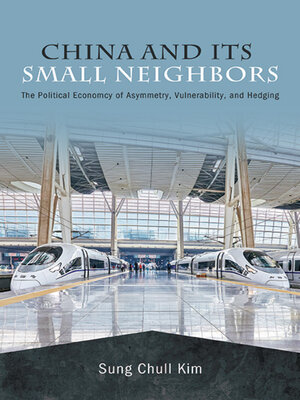China and Its Small Neighbors
ebook ∣ The Political Economy of Asymmetry, Vulnerability, and Hedging
By Sung Chull Kim

Sign up to save your library
With an OverDrive account, you can save your favorite libraries for at-a-glance information about availability. Find out more about OverDrive accounts.
Find this title in Libby, the library reading app by OverDrive.



Search for a digital library with this title
Title found at these libraries:
| Library Name | Distance |
|---|---|
| Loading... |
Analyzes the nature, processes, and political consequences of the asymmetrical relationships between China and its six small neighbors in Asia.
In China and Its Small Neighbors, Sung Chull Kim examines the political implications of the economic asymmetry between China and its small neighbors, part of wider changes in international relations brought about by the rise of China. While being critical of the current trend that focuses on the China-U.S. rivalry alone, Kim argues that a microanalysis of China's advances toward its neighbors is a guide to understanding the trajectory of China's expanding influence and transitions in world politics more broadly. Economic asymmetry-as seen in trade concentration, non-transparency, and reliance on bilateral aid-has made China's small neighbors vulnerable on the political front, thus generating potential threats to their sovereignty and independence. Because China has the upper hand in the bilateral relationships, these weak states practice dual-core hedging as a strategy for survival. They hedge on China for expected economic benefits and at the same time hedge against their powerful neighbor to mitigate the risks involved in that hedging-on. Each small state's mode of hedging depends on its degree of vulnerability and its availability of policy instruments such as multilateral institutions and bilateral partnerships with extra-regional powers.







